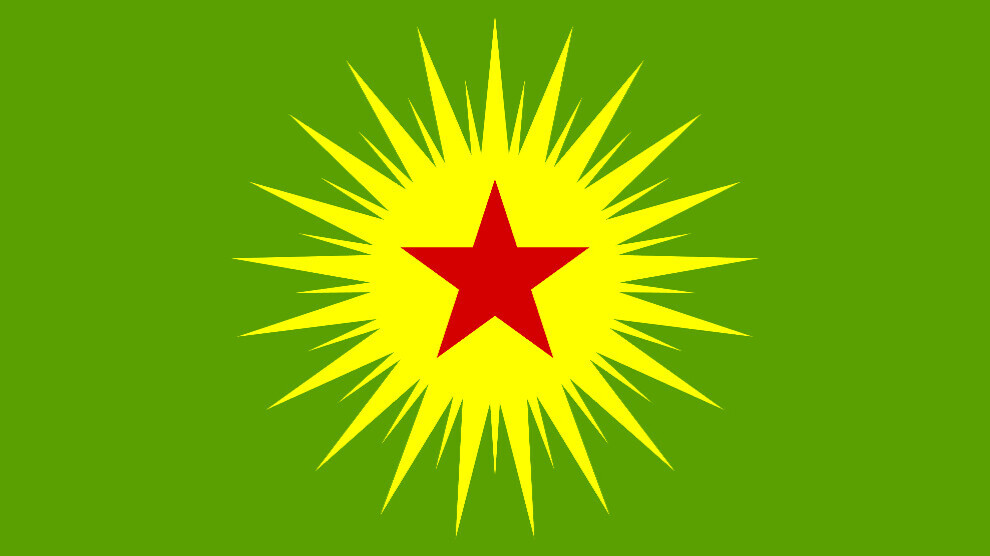KCK: Remembering the massacre of Halabja and comprehending its significance for today
The KCK issued a statement on the anniversary of the massacre of Halabja.
The KCK issued a statement on the anniversary of the massacre of Halabja.

36 years have passed since 16 March 1988, when thousands of Kurdish men, women and children were killed by poison gas by Saddam Hussein in the southern Kurdish city of Helebce (Halabja).
Every anniversary of the mass murder is a day of pain, anger and remembrance for Kurds. To mark the anniversary, the co-presidency of the Executive Committee of the KCK released a statement calling for intensifying the fight against the anti-Kurdish genocide.
The KCK said: "Today marks the 36th anniversary of the Halabja massacre, an atrocity which claimed the lives of thousands of people, committed by the homicidal, colonialist Baath dictatorship. We strongly condemn this barbaric and heinous act, as well as the genocidal fascist Saddam regime which carried it out, once more. We respectfully commemorate those who lost their lives during the tragedy, we honor all the martyrs of revolution and democracy in the person of the Halabja victims. Thus, we reaffirm our commitment to their memories. Every massacre committed against the Kurdish people will be retributed.
The statement added: "The Halabja massacre is one of the most horrific and brutal massacres to have occurred in human history. The massacre has exposed just how dangerous, vicious, and bigoted a nationalistic, racist nation-state mentality can make people. It also demonstrated the depth of Kurdish enmity."
Using chemical weapons, thousands of Kurds – men, women, children, and the elderly – were mercilessly murdered. Although this happened before the eyes of the world, not a single state raised an objection. The USA, Europe, and the UN, among other states, remained silent. Only when their interests were in jeopardy did they take a stand against the Saddam administration. But they failed to do anything at all in response to Anfal.
The killings perpetrated within the framework of the Kurdish genocide are being formulated by the forces of capitalist modernity. These forces designed a Middle East based on the division of Kurdistan and the unresolved Kurdish question, resulting in the genocide of the Kurdish people, thus, becoming complicit in all attacks and atrocities committed against the Kurdish people. For nearly a century, these forces have been pursuing this very agenda in North Kurdistan, through their incursions into Rojava, their attacks on Shengal [Sinjar], and the refugee camp in Makhmur. Encouraging the anti-Kurdish AKP-MHP administration is equivalent to condoning genocide."
The statement continued: "It’s important to comprehend how the Halabja massacre developed historically. Politicians, writers, and thinkers of Kurdish descent ought to pay attention to this and see that the real, historical narrative is told.
The ‘Patriotic Union of Kurdistan’ (PUK) and the Iraqi state came to an agreement in 1983 when the latter sought reconciliation after failing to advance the cause of the Kurdish people. The resolution of the Kurdish issue based on autonomy was part of this accord. Nevertheless, this accord was broken by Turkish state intervention. The Turkish government declared that it would not, in any form, accept the resolution to the Kurdish issue. After Jalal Talabani, who had been to Baghdad to negotiate and sign the deal, was openly informed by the Iraqi side as to the reasons behind the accord’s disintegration, Talabani returned to Kurdistan empty-handed. With the courage bestowed upon him by the Turkish state, Saddam turned his attention to the Kurds and launched the Anfal campaign after that date. The only way to address this massacre and its predecessing ones correctly, passes through the comprehension of this historical fact. Only then would it be possible to halt the genocide perpetrated on the Kurds and prevent further atrocities."
The statement said: "Genocide and massacres targeting the Kurdish people persist to this day. The Turkish state continues to implement this scheme during the administration of Tayyip Erdoğan. They use intimidation, violence, and occupation to try to stop the Kurdish question from being resolved in every part of Kurdistan. In an attempt to block the Kurds from reaching a settlement with the Syrian government in Syria, the Turkish state is again conducting the same policies it did in Iraq. The Kurdish people have endured massacres throughout history, and it is the Turkish state that obstructs a resolution to the Kurdish question.
As we remember the martyrs of Halabja on this 36th anniversary, we also need to strengthen our national unity, develop a deeper understanding of historical truths, and improve our ability to combat the enemy who is murdering and annihilating our people."